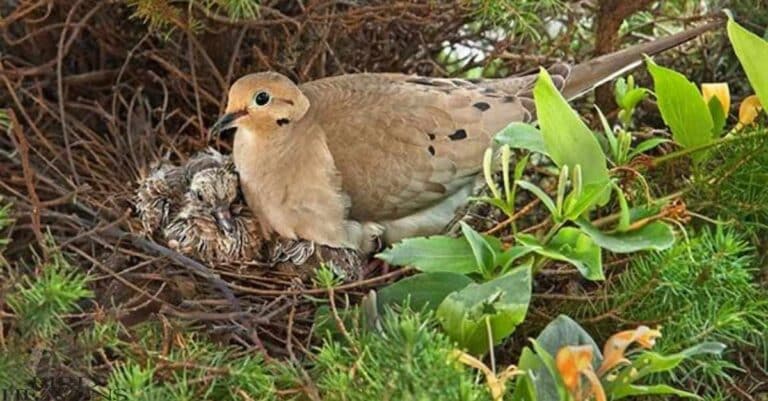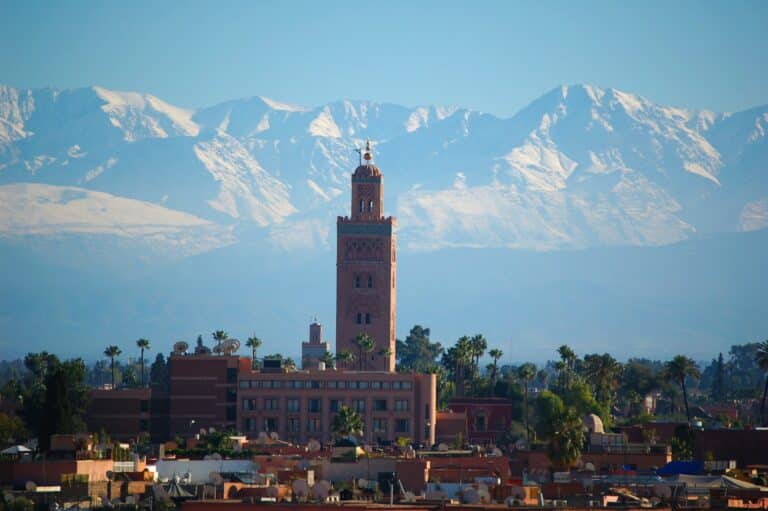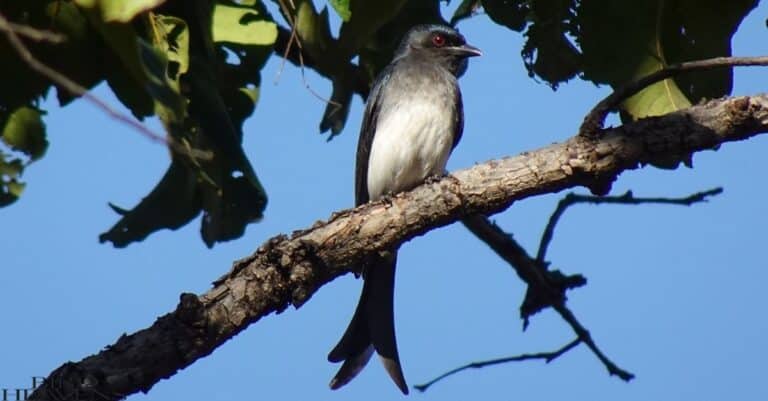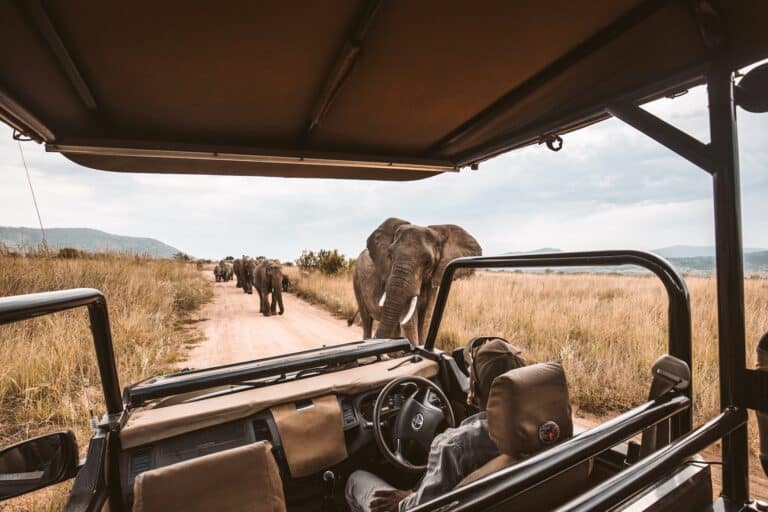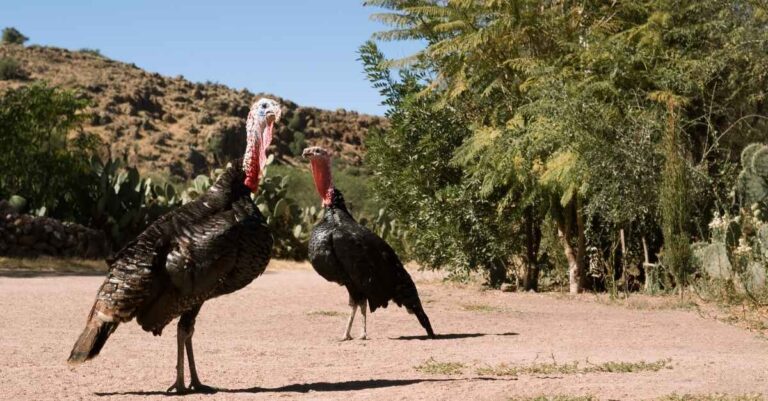Why Do Crows Chase Hawks? Do Crows Hate Hawks?
Crows chase hawks to protect their territory, families, and food sources. This behavior, called mobbing, is a defensive strategy against potential predators.
Crows work together to confuse and annoy hawks, making the area less appealing for hunting. It’s not about hatred, but survival.
This interaction helps maintain ecological balance and showcases the intelligence and social nature of crows.
Why Crows Chase Hawks?
Have you ever looked up and seen a group of crows chasing a hawk? It’s an amazing sight!
Let’s dive into this exciting bird drama!
1.Protecting Their Home :
Crows are very smart birds. They know hawks can be dangerous to them and their families. When a hawk flies into their area, crows team up to chase it away. This is how they keep their homes safe.
Example:
Imagine if a stranger came into your yard. You’d probably want them to leave, right? That’s how crows feel when they spot a hawk. They want to protect their nests, their babies, and their food sources.
Crows are territorial birds. They mark their areas and defend them fiercely. A hawk entering their space is like an uninvited guest at a party. The crows work together to show the hawk it’s not welcome.
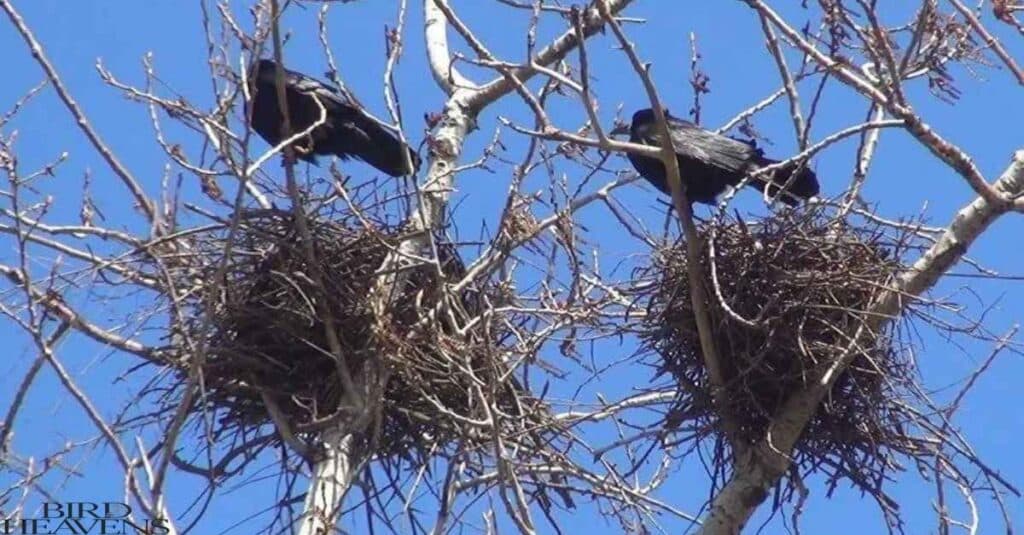
2.Stopping Hawks from Hunting :
Hawks are hunters. They eat smaller birds and animals. Sometimes, they might try to eat baby crows or steal crow eggs. Crows don’t like this one bit!
By chasing hawks away, crows are saying, “Don’t hunt here!” They’re trying to make the area less appealing for hawks to stick around and look for food. It’s like putting up a “No Hunting” sign, but with loud caws and flapping wings instead.
Crows are also protecting other small birds in the area. By driving away hawks, they’re like neighborhood watchdogs for the bird community.
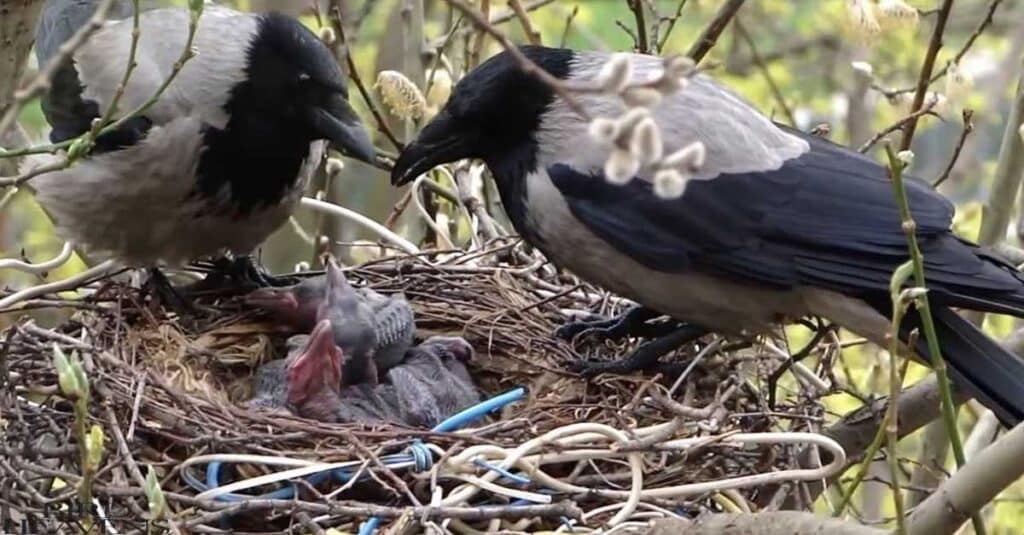
3.Warning Other Crows :
Crows are social birds. They live in groups and look out for each other. When they chase a hawk, they’re also sending a message to other crows nearby. It’s like they’re shouting, “Hey everyone, there’s a hawk here! Be careful!”
This warning system helps keep the whole crow community safe. It’s pretty clever, isn’t it? Crows use different calls to communicate different types of danger. They have a special “hawk alarm” call that tells other crows to be on high alert.
How Crows Chase Hawks?
Crows chase hawks which is explained below in detail:
What is Mobbing?
When crows chase hawks, bird experts call it “mobbing.” It’s a perfect word because it describes how crows gang up on the hawk. Here’s what mobbing looks like:
- Many crows fly around the hawk
- They make loud cawing noises
- Some crows might dive at the hawk
- They try to confuse and annoy the hawk
During mobbing, crows take turns diving at the hawk. This keeps the hawk off balance and makes it hard for it to fight back or hunt. The noise and movement can be very stressful for the hawk
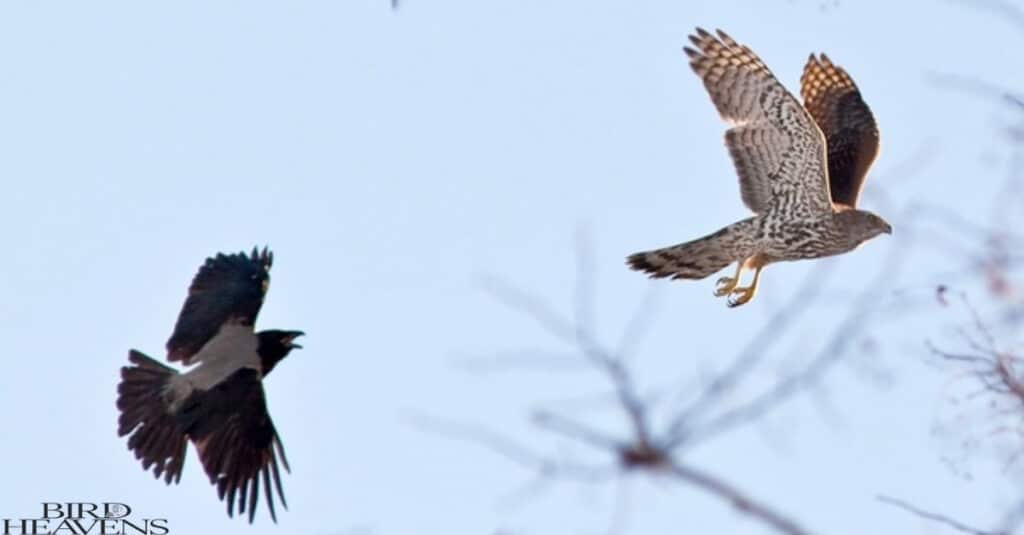
Mobbing behavior in crows is not just about self-defense; it’s a complex social interaction that demonstrates their intelligence and ability to communicate across species.
When crows mob a hawk, they’re essentially teaching their young about potential threats and how to deal with them.- Dr. Kaeli Swift, Crow Researcher
How Many Crows Join In?
When crows mob a hawk, it’s never just one or two. They believe in strength in numbers! Here’s showing how many crows might join in:
| Situation | Number of Crows |
| Small mob | 5-10 |
| Medium mob | 10-20 |
| Large mob | 20-50 |
| Huge mob | 50+ |
Sometimes, other bird species might join the crows in chasing away a hawk. Blue jays, mockingbirds, and even small songbirds can be part of the mob. It’s like a bird neighborhood watch program!
Personal Case Study:
I have been observing a family of crows in my backyard for 2.5 years. Last spring, I saw something amazing. A Cooper’s hawk landed near their nest, and within minutes, the two parent crows called for help.
About 15 other crows from the neighborhood quickly gathered. They took turns swooping at the hawk, making such a fuss that the hawk finally flew away. What surprised me the most was how fast the crows came together and how well they worked as a team.
After the hawk left, most of the crows flew away, but a few stayed behind to keep watch for a few hours. It was a strong example of how they protect their community.
Crow and Hawk Facts
Which Crows Do This?
Not all crows chase hawks, but many do. Here are some crow species known for mobbing:
- American Crows
- Northwestern Crows
- Fish Crows
- Common Ravens (which are like crow cousins)
- Hooded Crows (found in Europe)
- Carrion Crows (also in Europe)
These birds are found in different parts of North America and Europe. So if you live in these areas, you might see this happen!
You Might Like >>Why Don’t I Hear Mourning Doves Anymore?
Are Crows and Hawks Really Enemies With Each Other?
Here you will know are crows and hawks really enemies with each other:
Do Crows Actually Hate Hawks?
It might look like crows hate hawks, but it’s not that simple. Crows don’t have feelings like hate. They’re just trying to stay safe and protect their families.
Think of it like this: You don’t hate spiders, but you might not want them in your house. Crows feel the same way about hawks in their area. It’s not personal; it’s just about survival.
Crows are smart enough to know that hawks are predators. They react to keep themselves and their community safe. It’s more about self-preservation than hatred.
Do Crows Eat Hawks?
No, crows don’t eat hawks. Crows are omnivores, which means they eat both plants and animals. But hawks are too big for crows to eat. Crows usually eat:
- Seeds
- Fruits
- Insects
- Small animals like mice
- Carrion (dead animals)
So while crows might chase hawks, they don’t see them as food! Crows are opportunistic eaters, but a hawk is way too big for them to handle.
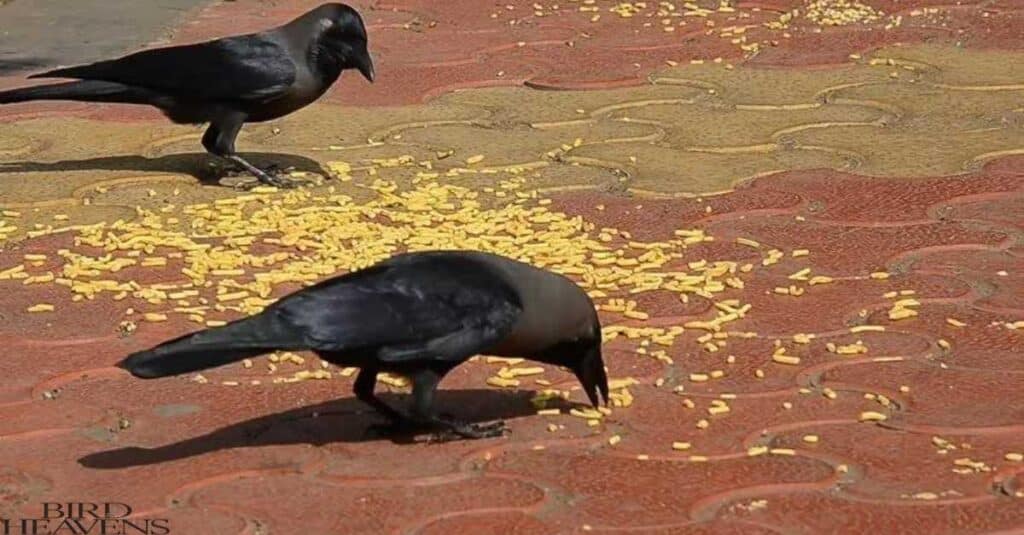
Do Hawks Eat Crows?
Usually hawks don’t eat crows. But, sometimes hawks do eat crows which is not very common. Hawks prefer to hunt easier prey like:
- Mice
- Rabbits
- Smaller birds
- Squirrels
Some larger hawk species, like the Red-tailed Hawk, are more likely to hunt crows than smaller hawk species. But even for them, it’s not a common meal.
You Might Like >>Parrots in Florida
Are Hawks Scared of Crows?
Hawks aren’t really scared of crows, but they do respect them. Hawks know that a group of crows can be annoying and might make hunting difficult. So while a hawk isn’t afraid, it might decide to hunt somewhere else to avoid the hassle.
Think of it like this: You’re not scared of a group of loud kids, but you might avoid their playground if you want some peace and quiet. Hawks feel the same way about areas with lots of crows.
Do Hawks Ever Fight Back?
Hawks are strong birds of prey. They have sharp beaks and talons. But they do not fight back against crows. Here’s why:
- A group of crows can easily overpower a bird like a hawk, with sometimes dozens of crows chasing just one or few hawks. This makes it difficult for the hawks to target any single crow for an attack.
- Hawks are outnumbered
- Fighting uses up energy they need for hunting
- They might get hurt, which could affect their ability to hunt later
Sometimes, if a hawk is really hungry or protecting its own nest, it might try to fight back. But this is rare and usually doesn’t end well for the hawk.
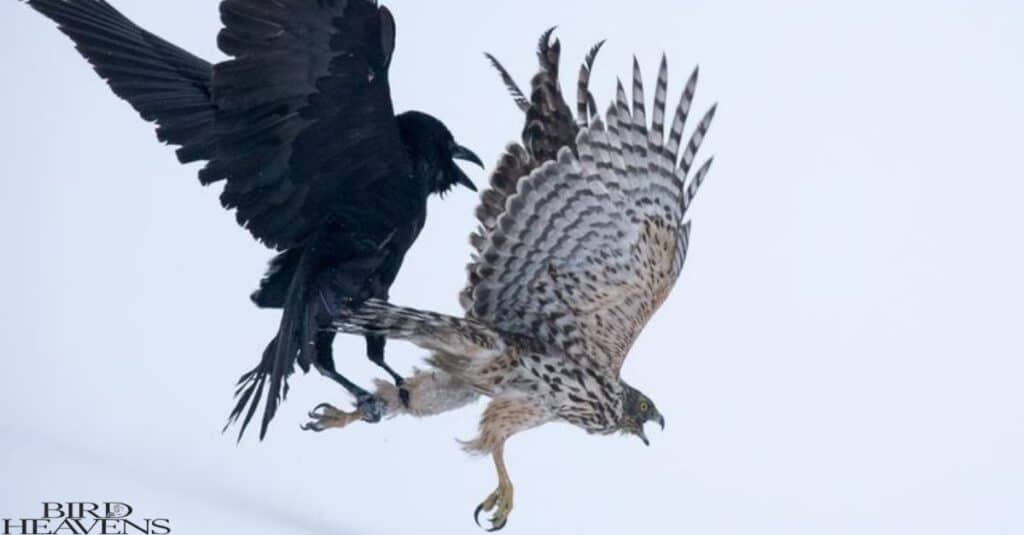
Can Crows and Hawks Ever Get Along?
Believe it or not, crows and hawks can sometimes be seen near each other without fighting. This usually happens when:
- There’s lots of food for everyone
- It’s not breeding season (when birds are extra protective)
- The hawk isn’t hunting
- They’re in a neutral area, like a big field or park
So while they’re not best friends, crows and hawks can coexist peacefully sometimes. It’s all about the circumstances and the environment they’re in.
You Might Like >>Why Do Hawks Screech
Who Wins Crows or Hawks?
Can Crows Hurt Hawks?
Crows are smaller than hawks, so they can’t really hurt them. But they can:
- Pull out a hawk’s feathers
- Peck at the hawk
- Make the hawk stressed and tired
While crows probably won’t seriously injure a hawk, they can make its life pretty uncomfortable!
Why Hawks Usually Fly Away
When faced with a mob of crows, hawks often choose to leave. Here’s why:
- Energy Conservation: Fighting takes a lot of energy that hawks need for hunting.
- Avoiding Injury: Even small injuries could make it hard for hawks to catch prey.
- Finding Easier Hunting Grounds: There might be better places to hunt without angry crows around.
Hawks are solitary hunters. They’re not used to dealing with large groups of noisy birds. Flying away is often the best option for them.
You Might Like >>Finches in Ohio
Why This Matters :
Balance in Nature :
The relationship between crows and hawks is part of a bigger picture in nature. Each animal has its role:
- Hawks help control populations of small animals
- Crows clean up dead animals and spread seeds
- Their interactions keep both species alert and healthy
This balance helps keep the ecosystem working well. Without predators like hawks, some animal populations might grow too large. Without scavengers like crows, dead animals wouldn’t be cleaned up as quickly.
The relationship between crows and hawks is a perfect example of coevolution. Over time, hawks have become stealthier in their hunting approaches, while crows have developed more sophisticated mobbing techniques. This ongoing ‘arms race’ helps keep both species sharp and adaptable.-Dr. John Marzluff, Wildlife Biologist
What We Can Learn from Birds :
Watching crows and hawks can teach us a lot:
- Teamwork: Crows show how working together can solve big problems.
- Adaptability: Both birds adjust their behavior based on the situation.
- Conflict Resolution: Sometimes, it’s better to avoid a fight than to win one.
- Community Protection: Crows demonstrate how looking out for others can benefit everyone.
- Resource Management: Hawks show the importance of choosing battles wisely.
Crows, Hawks, and Ecosystems :
Role in Pest Control :
Both crows and hawks play important roles in controlling pests. Hawks hunt rodents like mice and rats, which can damage crops and spread diseases. Crows eat insects that might harm plants.
Seed Dispersal :
Crows are great at spreading seeds. When they eat fruits, they fly away and poop out the seeds in new areas. This helps plants grow in different places.
Hawks indirectly help with this too. By keeping crow populations in check, they make sure crows don’t become too numerous in one area. This helps spread crow activity, and therefore seed dispersal, over a wider range.
By keeping these populations in check, crows and hawks help farmers and gardeners. It’s like they’re nature’s pest control service!
Conclusion :
Crows chasing hawks is an amazing sight that shows us how complex and interesting nature can be. Crows chasing hawks shows how smart and strong they are as a group. They do this to protect their homes and young ones, highlighting their teamwork and cleverness.
By working together, crows help keep nature in balance. Their actions teach us about the value of working together and staying alert to keep everyone safe.
Next time you see crows and hawks in the sky, you’ll know what’s really going on. It’s not just a fight – it’s a fascinating part of how these birds live together in the wild.
Frequently Asked Questions:
- Do Crows Actually Hate Hawks?
No – Crows don’t hate hawks; they react to them based on survival instincts.
- Do Crows Eat Hawks?
No – Crows do not eat hawks as hawks are too big for them to handle.
- Do Hawks Eat Crows?
Occasionally – While not common, some hawks do prey on crows, especially larger species.
- Are Hawks Scared of Crows?
No – Hawks are not scared but may avoid areas with many crows to reduce the hassle.
- Do Hawks Ever Fight Back?
Occasionally – Hawks might fight back if extremely hungry or protecting their own nest, but this is rare.

Andrew Paul is a renowned ornithologist and founder of Bird Heavens. With my extensive expertise in bird behavior and habitat preservation,I will insightful content on species identification and conservation.My Future plans include interactive workshops and online courses to foster a global community of bird enthusiasts committed to conservation and appreciating avian life. Join me at Bird Heavens


